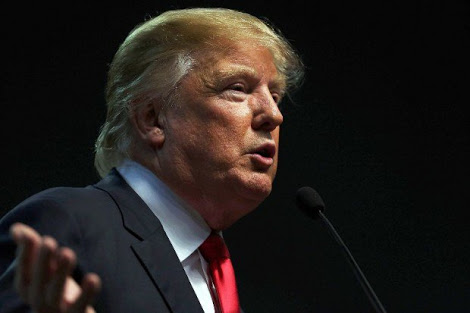A revised Executive Order (EO), which is expected to be out in two weeks by US President Donald Trump, is likely to include the Philippines among 10 new countries that face travel curbs, an Ohio-based immigration law firm has warned.
Beside Southern Philippines, Egypt, Lebanon, Afghanistan, Pakistan, Colombia, Venezuela, trans-Sahara (Mali), and Sulu/Sulawesi Seas Littoral might be included in the travel ban, local media reports quoted the information from Hammond Group LLC.
Last month, Trump signed an executive order that banned travel into the United States for citizens from these seven countries for 90 days: Iran, Iraq, Libya, Somalia, Sudan, Syria and Yemen, the reports said of Trump’s Jan. 25, 2017 EO titled “Enhancing Public Safety in the Interior of the United States.”
In June 2016, then candidate Trump proposed banning immigrants from countries where there is a proven history of terrorism against the United States and its allies. This includes the Philippines where two terror groups are listed, the Philippine Star highlighted.
The Hammond group warned nationals from the countries listed in the supposed draft review to refrain from traveling outside the United States until more information is known about the EO.
“Given the manner in which the current travel ban was implemented and the way it was announced with no advanced notice, not to mention the lack of guidance with regard to how it was to be enforced, we have no choice but to suggest that nationals from any country on this new list (without regard to their immigration status) refrain from traveling outside the US until such time as we know more about this proposed Executive Order,” the immigration alert read.
The law firm, however, admitted that it is also possible that the information it got could be inaccurate or incomplete, said the news portal.
Nevertheless, it reportedly said that the “severe consequences of being denied re-entry into the US would suggest extreme caution is justified at this time.”
Last Friday, Trump issued an EO prohibiting citizens of seven predominantly Muslim countries from entering the US for the next 90 days and suspending the admission of refugees for 120 days. It covers citizens of Iran, Iraq, Libya, Somalia, Sudan, Syria and Yemen. The EO was met with protests and even condemnation from some world leaders.
The EO did not clarify if it applies to dual citizens but the Ohio-based law firm said citizens should “expect delays at the airport as the Customs as the Customs and Border Patrol is unlikely to have the manpower to review passports and documents of travelers in a quick manner.”
DFA CLOSELY MONITORING
The Department of Foreign Affairs (DFA), meanwhile, has released a statement on the possible impact of the US immigration policy to undocumented Filipinos in the US.
It has assured Filipino citizens in the US that the Philippine Embassy and Consulates General in the US are closely monitoring the developments related to executive orders recently issued by the American government which may affect them, local media reports said.
The DFA statement, however, made no mention of the claims made by the Hammond law firm.
“We endeavor to provide advice to Filipino communities in the US on the basis of complete and accurate information. To this end, our officials have requested relevant US authorities to share details regarding the orders, the enforcement and possible implications of these orders,” The Philippine Star quoted DFA as saying.
The Philippine Embassy in the US is ready to extend appropriate assistance to Filipino citizens in the US who may be affected by immigration restrictions, the country’s Foreign Affairs department has reportedly said.
Separately, a Filipino professor who holds an immigrant status in the US was quoted as saying by Rappler that he had been advised by lawyers to apply for American citizenship and not leave the US until he attains that status.
The professor was given the warning that if he left now, he might not be allowed to return to his family in the US because he traces his roots to Mindanao, the report said.




